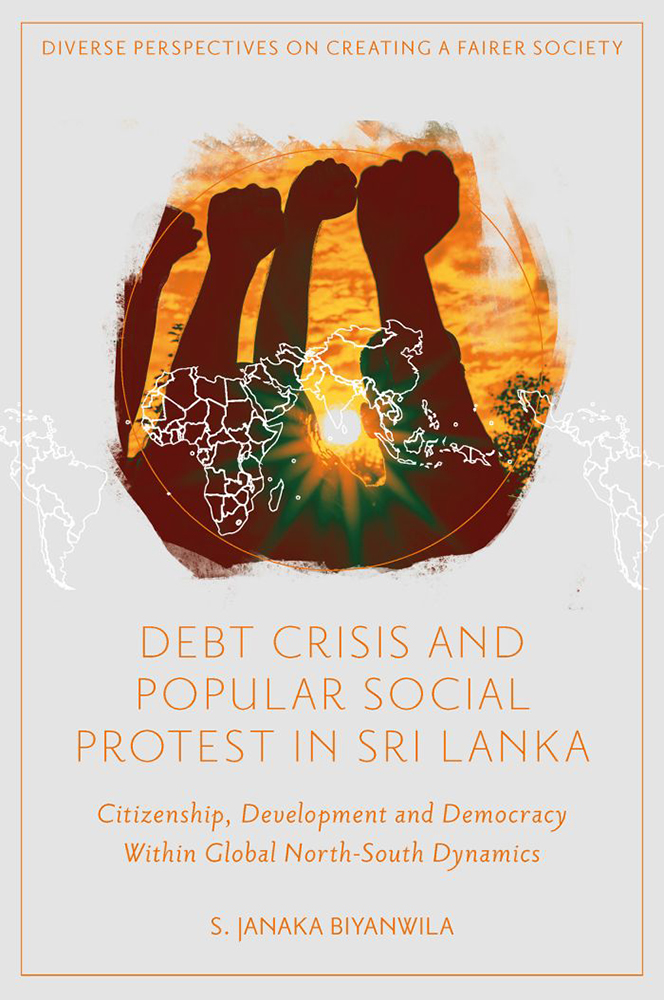The first detailed account in English of an unprecedented moment in Sri Lanka’s history, Debt Crisis and Popular Social Protest in Sri Lanka chronicles the 2022 popular uprising where mass protests forced the country’s autocratic president to flee.
Exploring how the uprising, triggered by a debt crisis, relates to deeper problems of democracy, civil war and development, Janaka Biyanwila challenges numerous misunderstandings about the protests and uncovers how global financial markets and platform economies contributed to the upheaval. Locating the crisis within Global North-South dynamics, Biyanwila outlines how market-driven economic growth strategies restrain public involvement in decision making while asserting ethno-centric collective identities and hypermasculine cultures. Framing citizenship as well as justice in terms of cultural recognition, economic redistribution and political representation, chapters foreground the role of democratic social movements that encourage artistic engagement and collective learning as central for renewing citizenship as well as democracy. Reimagining development that embeds Global Production Networks within local communities and rethinking democracy across multiple tiers of governance, Biyanwila concludes by shifting his narrative to a broader focus on the Global South, and South Asia specifically.









Be the first to review “Debt Crisis and Popular Social Protest in Sri Lanka”